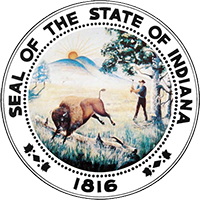To the Bench, Bar, and Public:
The Indiana Supreme Court seeks public comment on the following proposed amendments to the Indiana Rules of Court.
Civil Litigation Taskforce Recommendations — Rules for Alternative Dispute Resolution
The Civil Litigation Taskforce recommended amendments to the Rules for Alternative Dispute Resolution in its report to the Indiana Supreme Court. The proposed amendments encourage use of a wide variety of ADR methods and encourage mediators to provide their services pro bono by receiving one hour of Continuing Mediation Education credit per year if they complete at least one pro bono mediation during that year. (Registered mediators are required to complete six hours of CME per three-year cycle to maintain their registration under Indiana ADR Rule 2.5, so mediators would be able to satisfy half of their required CME through pro bono services.) Other proposed amendments include limiting the rules to non-binding forms of ADR and adding judicial review/approval of arbitration agreements involving the care, support, and/or assets of children or incapacitated adults.
Proposed changes to ADR Rules (Civil Litigation Taskforce)
Commission on Indiana’s Legal Future Recommendations — Alternative Dispute Resolution Rule 1.4
The Commission on Indiana’s Legal Future recommended proposed rule amendments in its interim report to the Indiana Supreme Court. The proposed amendment to Alternative Dispute Resolution Rule 1.4 would allow for the opportunity to use the Rules for Alternative Dispute Resolution in small claims cases.
Proposed changes to ADR Rules (Indiana's Legal Future Commission)
Commission on Indiana’s Legal Future Recommendations — Small Claims Rule 8
The Commission on Indiana’s Legal Future recommended proposed rule amendments in its interim report to the Indiana Supreme Court. The proposed amendment to Small Claims Rule 8 would allow greater flexibility for business owners to decide whether to hire counsel or not in small claims cases.
Proposed changes to Small Claims Rules
Tax Court Rules
The Indiana Tax Court proposed amendments to the Tax Court Rules that would align Tax Court practices with the Rules of Appellate Procedure where applicable for appeals involving final determinations from the Indiana Board of Tax Review. The proposed amendments would also organize the rules into four distinct Titles corresponding to different types of cases within the Tax Court’s jurisdiction to provide clearer guidance and more efficient processes for all parties involved in tax appeals.
Proposed changes to Tax Court Rules
Trial De Novo Rules
The proposed amendments to the Trial De Novo Rules would do the following:
- clarify the language in several places to make more readable
- include language requiring the clerk to open a Court Business case when there is a request for de novo review of an IF, OV, or criminal case
- clarify the action the court may take if a prosecutor/municipal attorney does not file a duplicate charging instrument within the required deadline
- delete the language requiring a standing order
- clarify language in Rule 2 and 3 to make clear that a petitioner cannot file for de novo review and later ask for reinstatement of the municipal court decision.
Proposed changes to Trial De Novo Rules
New Trial Rule 23.3
Proposed new Trial Rule 23.3 describes the procedure for transmittal of an agency record to a trial court in a petition for judicial review of an agency order and describes the procedure for the judicial review.
Proposed changes to Trial Rule 23.3
Trial Rule 56(E)
The proposed amendment to Trial Rule 56(E) would require any documents referred to in a summary judgment affidavit that have not been previously filed or produced to be served upon the opposing party within ten days upon request.
Proposed changes to Trial Rule 56(E)
Trial Rule 76
The proposed amendment to Trial Rule 76 would make the language more readable and move the change of venue provision for family law cases into a separate paragraph.
Proposed changes to Trial Rule 76
Feedback
The Court invited public comment on the proposed amendments until 12:00 p.m. (Eastern) on Monday, November 18.
Comments submitted by other means, including those sent directly to court staff or members of the Rules Committee will not be considered.
The Supreme Court's Rules Committee records and reviews each public comment received according to Indiana Trial Rule 80(D). The committee may then adjust the language in the proposed amendment based on public comments. If the committee moves forward with a proposed amendment, a final draft of the rule is submitted to the Indiana Supreme Court with copies of all public comments received. The Court then determines whether to accept the proposed amendment, reject it, rewrite it themselves, or send it back to the Rules Committee for additional study. This process can take several months. If a rule amendment is accepted, the Court will issue an order amending the rules.
